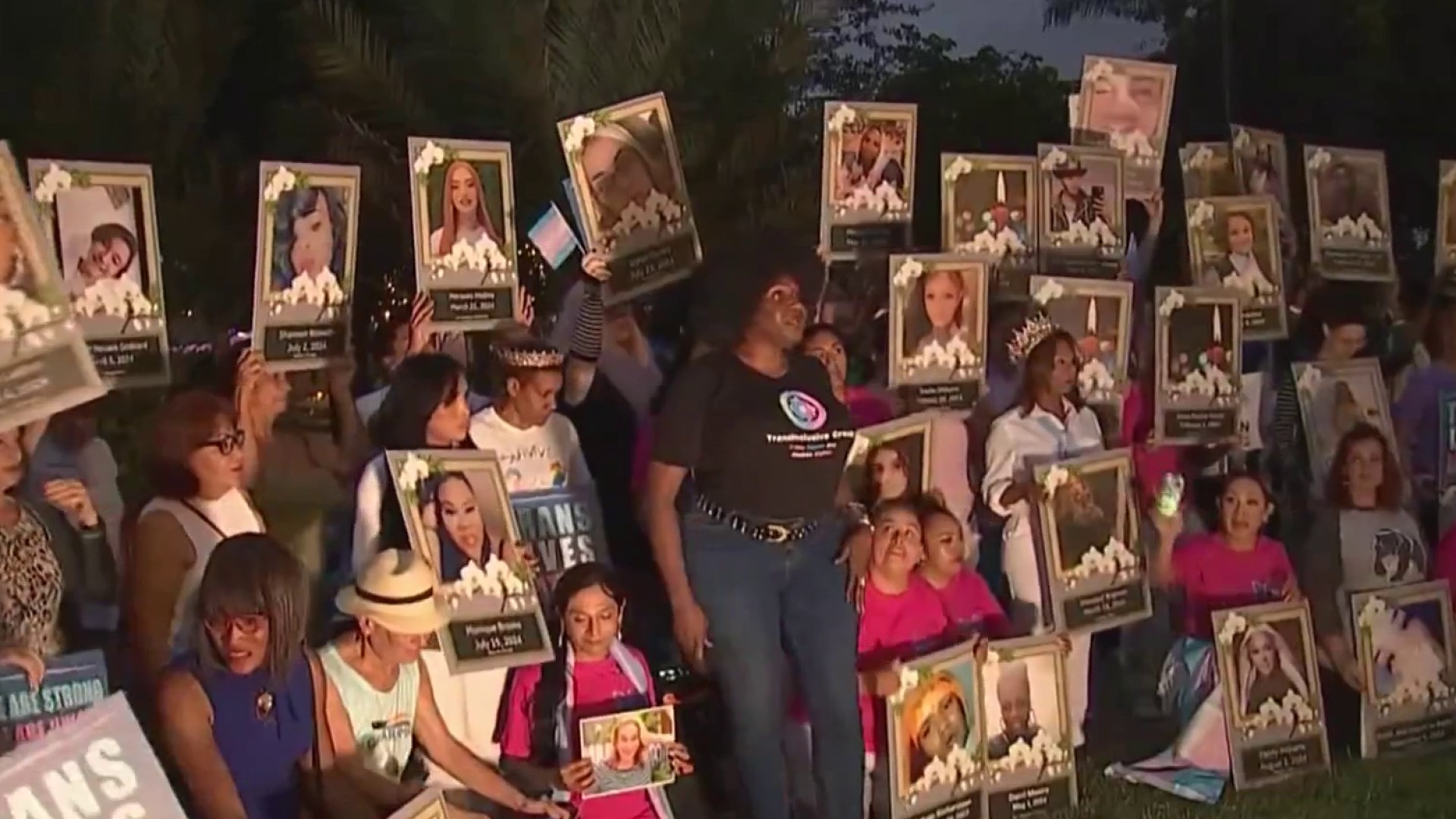The start of the next legislative session in Florida is just around the corner, and LGBTQ+ activists are on high alert.
From “don't say gay or trans” to bathroom bills, in the last two sessions, lawmakers proposed dozens of anti-trans laws. Some of them passed — others didn’t. And there’s increasing concern about what could come next.
Watch NBC6 free wherever you are
Fifty-five anti-LGBTQ bills were filed in the last two years in Florida, which activists called a “slate of hate bills." While most didn’t pass, the ones that did specifically target gender identity.
Meet 50-year-old Amy Lundberg. Amy used to be David. She now identifies as a trans woman but has always known something was different.
Get local news you need to know to start your day with NBC 6's News Headlines newsletter.
“It was looking in the mirror and going, like, this doesn't belong, that doesn't belong, like, that's not right ... so why doesn't my mental image and the way I feel about myself, and who I believe I am, match what I look like?" Amy said. "You know, so as I've gone through this, it's become, like, obviously very affirming for me."
It wasn’t until recently that Amy decided to fully transition.
BEYOND GENDER
“So, I started my transition about two and a half years ago, and I started with just hormones," she said. "And as time progressed, I decided I wanted to do my voice first. So, I've had vocal feminization surgery, which I had in November of 2023 at the University of Miami.
Amy also got breast augmentation and decided to do bottom surgery, which is genital reconstruction. Her decision to transition was also around the same time Florida's legislature started introducing a series of anti-trans bills.
“And through that process of getting it approved with the insurance and all that stuff, the legislation that had been happening this whole time through my transition had started affecting things," she said. "And I was notified that by the end of June, the University of Miami was no longer doing gender-affirming surgeries. Officially, they have not said anything, but we know it's because funding, because the state's holding back funding for any institution that does anything."
Gender-affirming surgeries and care are supported by the American Medical Association. Amy says no public funds were used to pay for her transition.
NBC6 reached out to the University of Miami about their gender-affirming surgeries. They have not responded to our requests.
But Amy tells us she needs a “revision” – also known as a redo surgery – for medical reasons, and she’s still unable to get it. That’s because Gov. Ron Desantis signed into law a gender-affirming care ban. It would take away licenses from providers and prohibit Medicaid from covering gender-affirming care.
“It seriously limited the types of healthcare providers that could offer that care," said Jon Harris, the policy director at Equality Florida. "So, we saw a restriction for delivering care by any, basically, nursing staff, and care was restricted to medical doctors and doctors of osteopathy. What we came to learn was that, by some estimates, about 75% of that sort of healthcare for transgender adults was provided by some of those professional licensed nursing staff."
“We've had state lawmakers talking about their own constituents, referring to transgender Floridians as mutants and demons," Harris said.
For trans people like Amy, the laws are devastating.
“Like, I still can't figure out why it matters. Like, that's where I struggle most. So, I started as, like, the core of my being, in a lot of ways, hasn't changed," Amy said. "I've become a nicer, softer, gentler, kinder version of who I've ever been, and I can't for the life of me figure out why it's become like this political issue, because I don't understand, like, this helps me, it helps the people in my life, because I'm a better person than I've ever been."
Other laws passed include an anti-drag bill, known as the Protection of Children Act. It fines or revokes the liquor license to any place that allows people under 18 to see what they say are “sexually lewd” performances. The state also expanded the so-called "Don’t say gay" bill, which prohibits classroom discussion about sexual orientation or gender identity in certain grade levels or in a specific manner. That's currently being challenged in the courts.
And there’s a law that bans gender-neutral public bathrooms and makes it a crime for a transgender person to use a restroom that matches their gender identity. Another law allows medical providers to deny patient care on the basis of religious beliefs.
Despite all these obstacles, the transgender community is standing strong.



